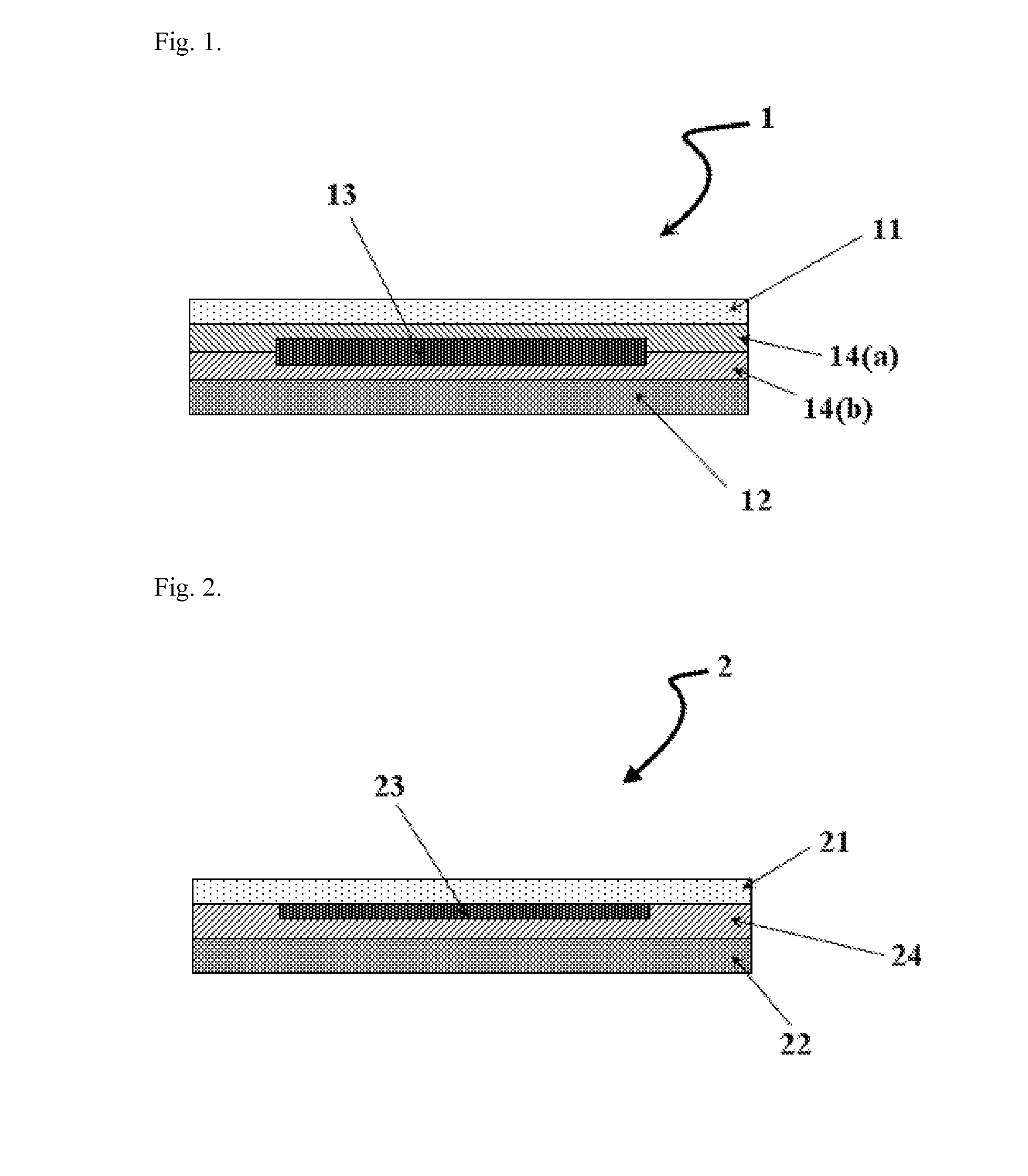Olefin-based ionomer resin composition
a technology of ionomer resin and ionomer resin, which is applied in the direction of basic electric elements, electrical equipment, coatings, etc., can solve the problems of easy delamination or peeling between layers, easy delamination, and deterioration of modules, so as to improve long-term adhesion characteristics and heat resistance, excellent adhesion force to a substrate, and economic efficiency.
- Summary
- Abstract
- Description
- Claims
- Application Information
AI Technical Summary
Benefits of technology
Problems solved by technology
Method used
Image
Examples
example 1
[0093]Manufacture of Encapsulant
[0094]2 parts by weight of vinyl trimethoxy silane (VTMS) and 20 parts by weight of acrylic acid were grafted to 98 parts by weight of a polyethylene having a density of 0.885 g / cm3 and an MFR of 2 g / 10 min at 190° C. (octene content: 8.5 mol %, Mw=89,000, Mn=34,230, and Mw / Mn=2.6) using 10 parts by weight of 2,5-dimethyl-2,5-di(tert-butylperoxy)hexane, 20 parts by weight of a modified ionomer resin in which a part of carboxyl groups were neutralized by 8 parts by weight of zinc metal ions (Zn2+), 70 parts by weight of a linear low-density polyethylene having a density of 0.898 g / cm3 and an MFR of 2 g / 10 min at 190° C., and 10 parts by weight of a separately prepared master batch (pelletized by mixing 3 parts by weight of a hindered amine-based light stabilizer, 2 parts by weight of a benzophenone-based UV absorber, and 2 parts by weight of a phosphorus-based heat stabilizer with 100 parts by weight of the linear low-density polyethylene, then melting...
example 2
[0097]An encapsulant and a photovoltaic cell module were manufactured in accordance with the method in Example 1, except that 2.5 parts by weight of glycidyl acetate was used as the second monomer instead of acrylic acid and the content of zinc metal ions was controlled to maintain the degree of neutralization at 40% when the modified polyethylene ionomer resin was prepared (content in the sheet-shaped encapsulant: silane 0.4% by weight and acid content 0.5% by weight, and degree of neutralization: 40%).
example 3
[0098]An encapsulant and a photovoltaic cell module were manufactured in accordance with the method in Example 1, except that sodium ions (Na+) were used as the metal ions (content in the sheet-shaped encapsulant: silane 0.4% by weight and acid content 4% by weight, and degree of neutralization: 40%).
PUM
| Property | Measurement | Unit |
|---|---|---|
| density | aaaaa | aaaaa |
| melt flow rate | aaaaa | aaaaa |
| density | aaaaa | aaaaa |
Abstract
Description
Claims
Application Information
 Login to View More
Login to View More - R&D
- Intellectual Property
- Life Sciences
- Materials
- Tech Scout
- Unparalleled Data Quality
- Higher Quality Content
- 60% Fewer Hallucinations
Browse by: Latest US Patents, China's latest patents, Technical Efficacy Thesaurus, Application Domain, Technology Topic, Popular Technical Reports.
© 2025 PatSnap. All rights reserved.Legal|Privacy policy|Modern Slavery Act Transparency Statement|Sitemap|About US| Contact US: help@patsnap.com


